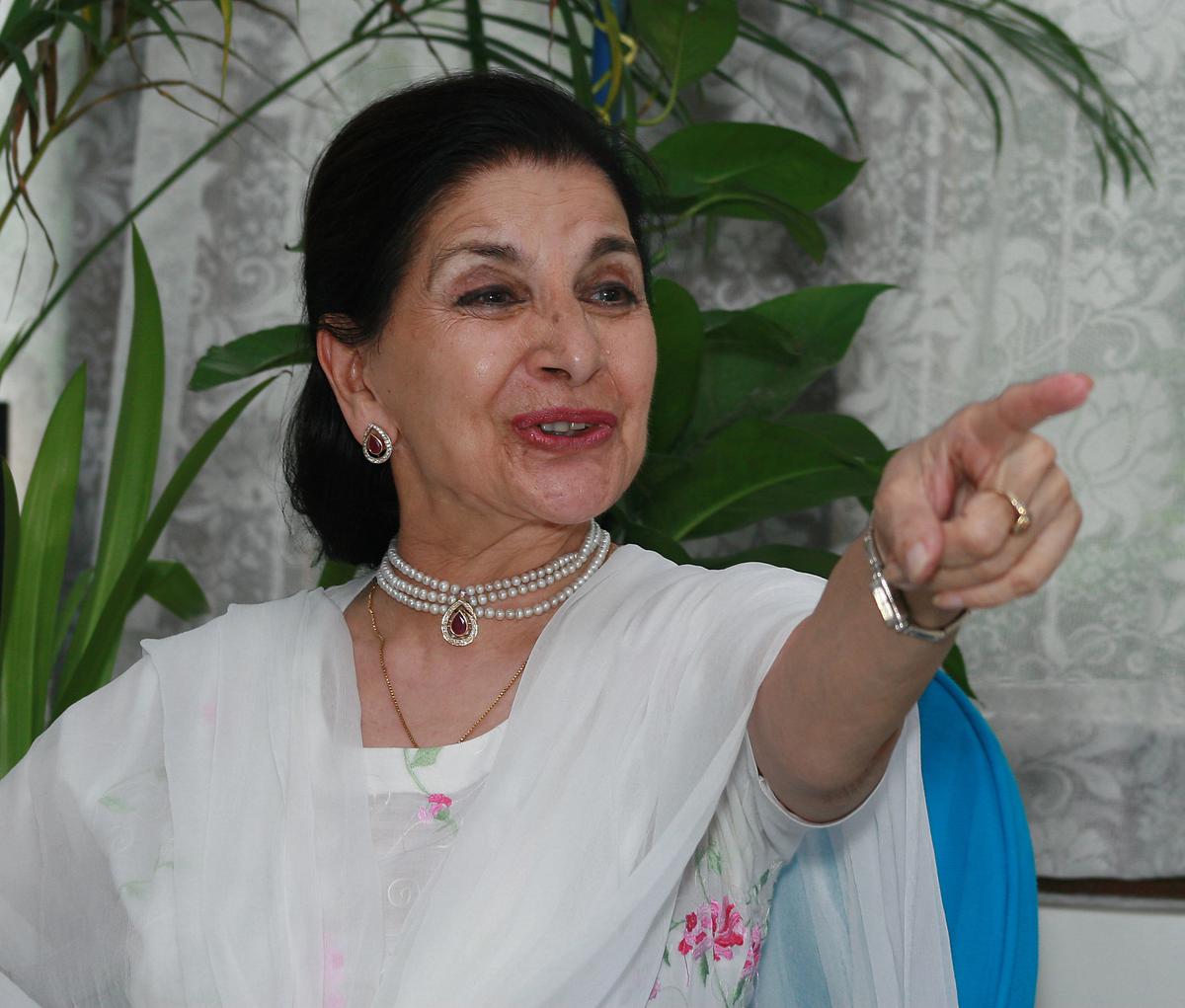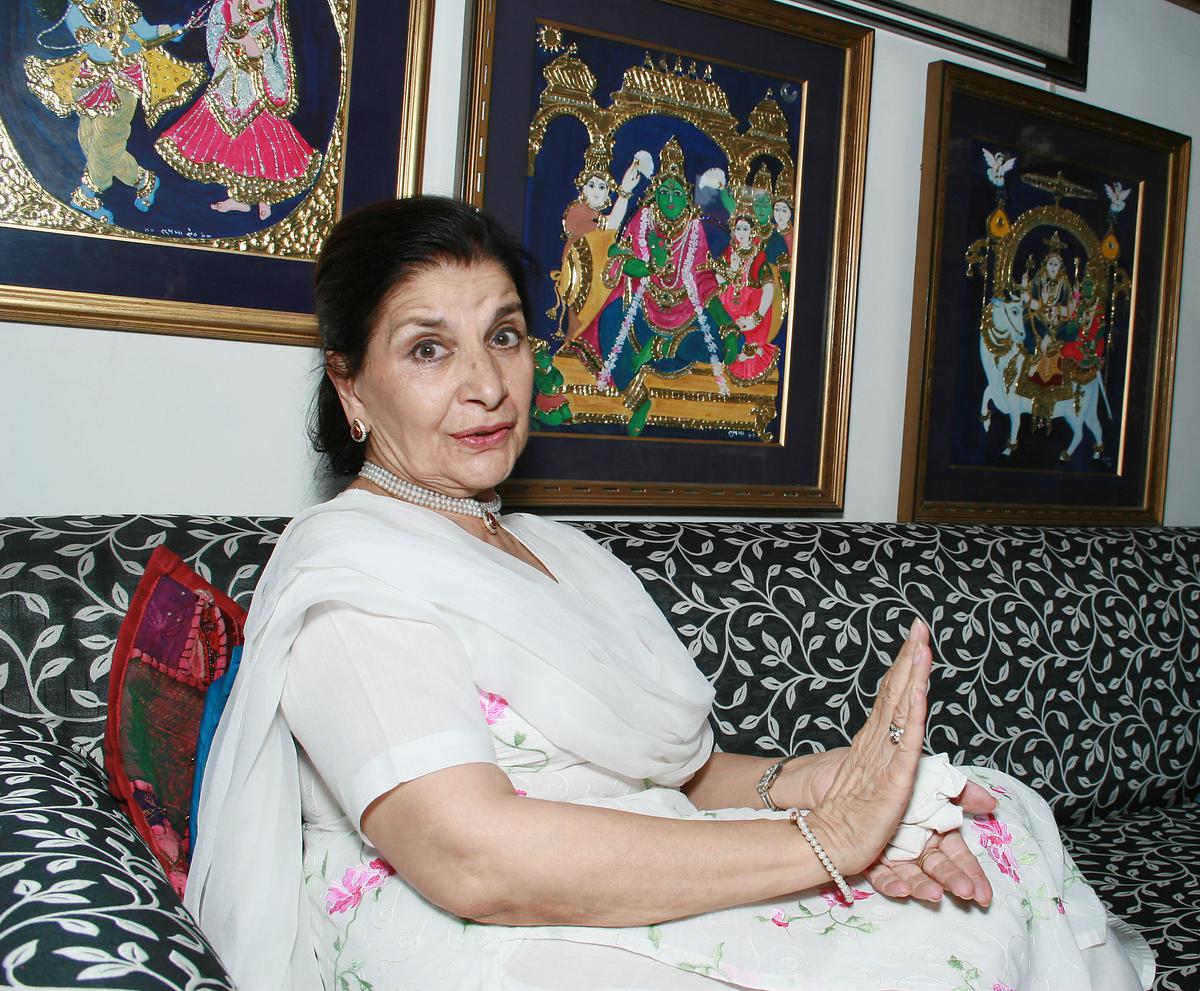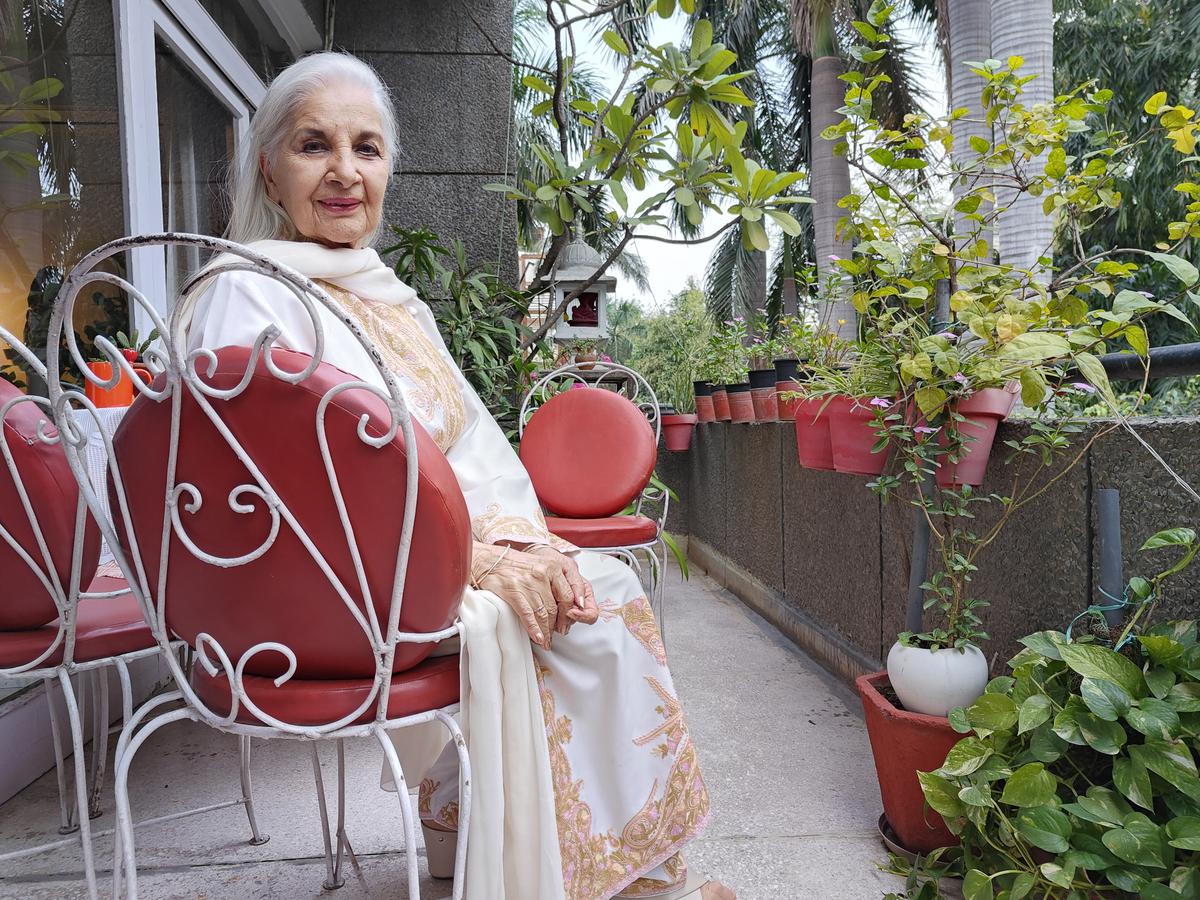Review of Sushma Seth’s performance as Catherine in Shakespeare the Taming of the Shrew, Theater critic Walter Gardner wrote, “I have never seen an actress act with such abandon in India; He really kicked it and clawed his way through the part.
Not much has changed since the 1960s. Give it to the magic of yoga or her boundless spirit, Sushma continues to defy stereotypes. At the age of 86, his memory is sharp and his behavior is sassy. Immaculately dressed, she invites us to a photo shoot in the balcony of her beautiful home in New Friends Colony before twilight gets the better of her dazzling vision; He was honored with the prestigious Lifetime Achievement Award Mahindra Excellence in Theater Awards (meta) 2023 on Wednesday evening. An excellent actress and director, Sushma has contributed in every department of the theater and has worked to make the stage an equal place.
Sushma grew up in a progressive Delhi household, where, as she says, most of the men were into sports and the women were drawn to the arts. His uncle Maheshwar Dayal was an exception. An actor and a playwright, he wrote three plays for his niece because he saw something in her. “I had a flair for difference even then. In one of the plays I did opposite Raj Kapoor, I played a Nawab and in another I played an old lady with a Haryanvi accent.
Sushma Seth
As fate would have it, years later she took on the role of grandmother. We people Whose dialogues also had Haryanvi flavor. The iconic series is running on the DTH platform these days. sushma says Grandmother Has not aged. “When it was first aired, everyone said that there is someone like him in the house. I think it still holds true to the character who is a bit offbeat, fun and unlike the stereotypical grandmothers who were either too shrill or curmudgeonly.
Sushma recalls how she used to dress up in the character with her mother’s clothes and how she would receive a sack of fan mail which she would answer during breaks between scenes. “Women wanted the grandmother to solve their personal life problems. Some girls also appeared at the door. Once a girl begged me that she wanted to live with me as her in-laws made her life hell. I had to call his mother to sort out the situation.
Sushma learned the nuances of theater from Briarcliff College and Carnegie Mellon in America on scholarship. It gave him a head start but it created its own share of assumptions. Seth remembers that when she was looking for a position, Joy Michael, with whom she founded the popular Yatrika Theater Group, used to take English pronunciation classes for those appearing for Indian Administrative Services interviews.

Sushma Seth | Photo credit: Shiv Kumar Pushpkar
“As she was in a family way, I filled in for her for a few months after she returned from the US. The center was in Shankar Market where most theater groups used to rehearse. Fortunately, Habib Tanveer’s team kept on increasing. Rustum Sohrab And An actor who was playing a pivotal role had to leave the assignment at the eleventh hour. Somebody told Habib sahib that I was around. He sent someone just to check whether I’m speaking or not comes and goes A kind of overbearing English. And once he was convinced, I got to play the beautiful part of Gurdafini. But acting in front of the camera was nothing new to Sushma as she used to do teleplays for Doordarshan in the 1960s. He regrets that the rich archival material was lost because no one thought to preserve it. “They kept recording on the same tape.”
But when Shyam Benegal offered him an important role Passion, He realized that there was a difference. “In theatre, we do scenes in a sequence. So feelings naturally build up. Films are not shot in sequence. In Passion, we started with the scene when my son’s body is brought in. Since morning, I was worried about how I would cry at the sound of action. I tried to think of the worst things that could happen to her. Eventually, when the time came, the tears came on cue. As I finished, Shyam said, now let’s take a close-up. I said but my tears stopped. He replied casually, Use glycerine! It was my first experience of how cinema works. Unlike theatre, you can’t overdo it here.”
When the film released, Sushma discovered the wider reach of the medium. “I played the leading lady on the Delhi stage for 20 years but when Passion Released, many of my acquaintances who did not have time for the theater said, “You act!”

Sushma Seth during an interview at her residence in New Delhi | Photo credit: Shiv Kumar Pushpkar
After that, Sushma did not look back and contributed in every department on the platform. “I was accepted as Rano a sheet dirty, Champa In Sakharam Binder as well as a black woman Moon in a rainbow shawl. There was never a question of image. Sushma says that she had no intention of going into films. “There was hardly any money in theater but I was happy doing plays and there was no time to watch movies. At any given time we would be working on three plays and would be bringing in props from home to set up the stage.
He worked with the best in the business in films like Raj Kapoor and BR Chopra love disease And courtesan,
“Raj Kapoor had a knack for making actors feel important. He would slowly plant the seed of what he wanted in my head and then make me feel that it was I who made it special.
Once the shoot was over, Sushma says she was a homemaker and a mother. “I have never seen how the film performed or made time for mahurats, premieres and parties.” In her 40s, she played the mother of an actor equal to or older than herself, but Seth says heroines were between 16–40 in those days. “I asked for no regressive, tasteful words, and lines were changed several times at my request. In Shandar, I protested when the makers made me do things that I protested all my life but that character was something!

Sushma Seth | photo credit: anuj kumar
Sushma says theater is in safe hands and patrons like Meta are making it profitable but playwrights like Vijay Tendulkar and Badal Sarkar are sorely missed. “I think what is missing these days is the ability to say something meaningful in a fun and entertaining way. This generation prefers to talk straight.